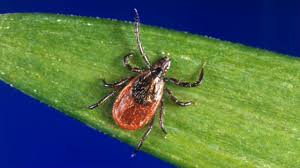Eating Habits You Must Give Up For Clearer Skin, Say Dietitians — Eat This Not That

These foods keep you looking young, these supplements may promote better skin, and these foods give you glowing skin, but can certain habits wreak havoc on clear skin? You betcha.
"From food choices to eating habits, these can all impact your skin negatively. Oftentimes, skin issues are connected to inflammation, poor gut health, and/or imbalanced hormones," says Paulina Lee, RD, LD, functional dietitian and founder of Savvy Stummy, LLC. Read on for a look at six such unhealthy eating patterns that can lead to skin issues, and for more on how to eat healthy, don't miss The #1 Best Juice to Drink Every Day, Says Science.


French fries, fried chicken, processed pastries, white bread, the list of inflammatory foods goes on and on—and sadly many are consumed by American individuals with alarming frequency. "Consuming inflammatory foods can negatively impact your gut health and increase internal inflammation leading to skin breakouts. Our gut health is deeply connected to our skin. That's why eating right to optimize your gut health may improve your complexion," says Lee.
"Research studies have observed imbalances of the gut and skin microbiomes, known as dysbiosis, in a number of common skin conditions, including acne, rosacea, psoriasis, and atopic dermatitis. And of course, most of us are familiar with how our wacky hormones can lead to crazy skin breakouts or acne. By eating balanced meals and lifestyle practices that support healthy hormones, we can positively impact our skin."


Sign up for our newsletter!


This is another negative eating habit that can be bad news for your skin, along with your overall health. "Interestingly, some research does show that there is a significant correlation between acne and disordered eating, which means that disordered eating is a confounding variable that should be controlled for in acne-related research," says Rachel Fine, RDN, a registered dietitian and owner of To The Pointe Nutrition, a nutrition counseling practice in NYC.
Fine says that for clearer skin, aim to reduce stress levels. "Restrictive eating habits and yo-yo dieting are known to increase allostatic load (stress)," she adds.


Another one of the worst habits for clearer skin? Not getting enough probiotics in your diet. "More research is needed to understand the underlying mechanisms explaining the gut-skin connection, but it has been suggested that the composition of our gut microbiome may contribute to the development of certain skin conditions, especially if we have a dysbiotic gut," says Lee.6254a4d1642c605c54bf1cab17d50f1e
"One study showed that probiotic intake was associated with a significantly lower incidence of eczema (atopic dermatitis) compared to the placebo group, suggesting that probiotic supplementation may be effective in preventing eczema."


All about pasta and white bread and packaged sweets? Beyond nixing these unhealthy foods from your everyday diet for your overall health, doing so may also be a boon for your skin. "Refined carbs, like white rice, white bread, baked goods, sweets, or sweetened beverages, are typically foods that are high on the glycemic index (GI). High GI foods raise the blood sugar more quickly compared to low GI foods," says Lee. "Research suggests that foods that raise blood sugar levels and cause a greater insulin response can make acne worse. This rise in blood sugar can also stimulate the secretion of androgens, which when elevated may contribute to acne."
RELATED: Surefire Ways to Lower Your Blood Sugar, Say Dietitians


Often, eating a highly refined carb-focused diet and a low-fiber diet goes hand in hand. Nevertheless, it's worth highlighting that a diet low in fiber-rich foods may be another contributor to lackluster skin.
"Just as probiotics are important for the gut microbiome, prebiotics and fiber are also just as beneficial to our gut health. From what we know about the gut-skin connection, supporting a healthy gut means supporting healthy skin. Prebiotics, a type of fiber, act as food for bacteria to support the growth of good gut bacteria," offers Lee.
"Prebiotics can be found in high-fiber foods like onions, garlic, leeks, asparagus, oats, and apples. Fiber also feeds healthy gut bacteria. When fiber is fermented, the byproducts form anti-inflammatory compounds, called short-chain fatty acids (SCFAs), that are vital for skin health, metabolic health, brain health, and immune health."
RELATED: What Are Prebiotics? Plus 10 Dietitian-Approved Ways to Get More


Starting to see a pattern here? Processed foods aren't good for your skin, friends. "Western diets are typically high in overly processed foods and refined carbohydrates, which can lead to inflammation. Inflammation can lead to acne and skin breakouts, so following an anti-inflammatory diet may be beneficial," says Lee, pointing to this research.
"Anti-inflammatory diets might consist of whole-food-based and nutrient-dense meals with focus on foods high in omega-3 fatty acids, like salmon, and antioxidants, like berries." On that note, to feel good and get that glowing complexion, pass the berries and oatmeal, please.


 Canada
Canada Argentina
Argentina  Australia
Australia  Austria
Austria  Brazil
Brazil  Germany
Germany  Ireland
Ireland  Italy
Italy  Malaysia
Malaysia  Mexico
Mexico  New Zealand
New Zealand  Poland
Poland  South Africa
South Africa  United Kingdom
United Kingdom  United States
United States 



























